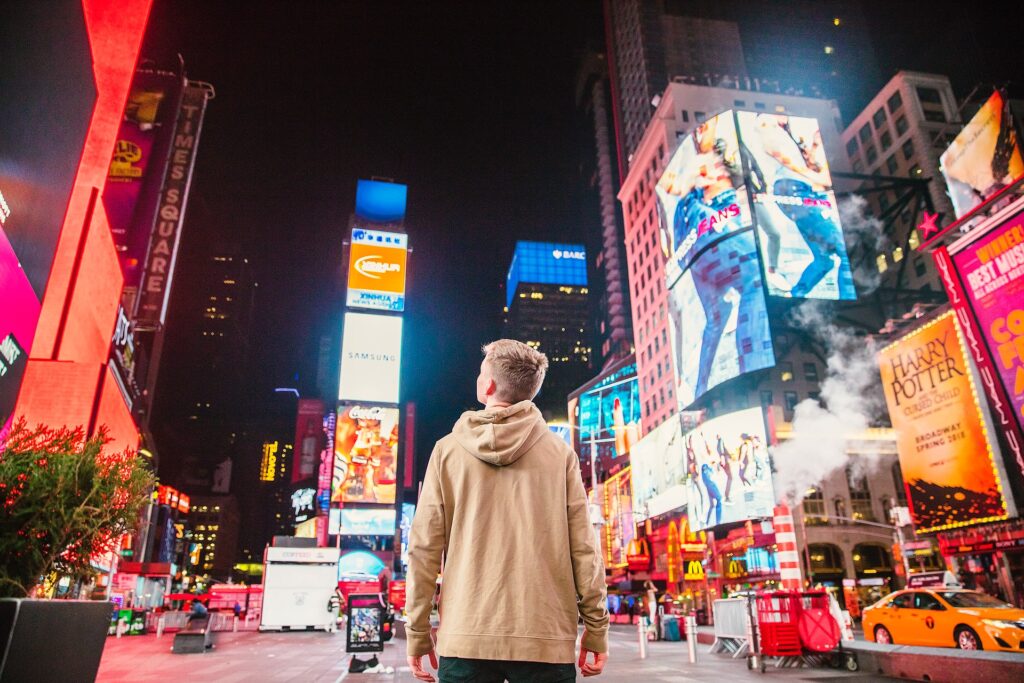“Inclusive” is a bad word. Not intrinsically, but rather in its contemporary usage. My dad, God rest him, used to say there are no such things as bad words, only words used badly. We are currently using this word very badly.

I use a process I call “scaling” to help me understand things. This stems from a belief that what is beneficial or detrimental to me personally remains so at the familial, communal, societal, and even global levels.
Here’s an example. If I drink a lot of sugary sodas, I will gain weight and over time my health will be compromised. If I get my family hooked on soft-drinks, the same will happen to all of us, with the added detriment of unhealthy behavior being reinforced by the people we love. As we continue scaling up, we see the sugary-drink dilemma getting bigger and bigger as the beverages become ubiquitous at every corner store and, eventually, all around the world with corresponding rates of diabetes, obesity, and a whole host of other health problems.
The process works in reverse also, but it’s less obvious and a whole lot more uncomfortable.
Because once me and my family and the whole world are happily sipping carbonated death, any introduction of legislation at the societal level to curtail the consumption of beverages will register as a jarring infringement upon our private lives by Big Government. Introducing change at this level is almost always problematic. The public is distracted by polarizing, politicized rhetoric, state-sanctioned censorship, and appeals to emotion that have less and less to do with the actual issue. Rather we are baited into focusing on choosing sides and advancing political agendas that have nothing at all to do with sugary soda.
In the end, we become confused by things that are, in essence, very simple.
Let’s get back to inclusion.
There are parts of myself that I share and there are things that I keep private. I’m pretty sure that’s true for almost everybody. We do not feel an instinctual desire to share everything with everybody. We are not inclusive at this level. We are selective.
When it’s time to find a marriage partner, someone with whom we’d like to build a life, we are similarly selective. We do not open ourselves to every possibility. Rather, we confine ourselves to criteria that we have established within ourselves as optimal for a potential spouse.
Scaling from domestic into communal life, an inventory of our friends and associates will likely reveal a very limited cross-section of social possibilities. It is doubtful that any of us has a social circle that is inclusive of all possible demographic representations. Our associates probably mirror something of our ethnicity, interests, socioeconomic status, beliefs, political orientation, and/or ethical values. This is why the white person talking about his “Black friend” rings so hollow in advocacy circles concerned with racial parity. The friend’s “Blackness” is likely not salient to the friendship. It is incidental. There is almost certainly another link that is not related to the celebration and elevation of Black American culture.
If we are instinctually selective at the personal, familial, and communal levels, why would we feel the need to be suddenly and unabashedly inclusive at the level of social or national policy?
Disingenuously crafted soundbites aside, we’re not, of course.

Admit this: we don’t let just anyone walk into our home. Those of us with locks and doorbell cameras have them for a reason. We do not live a life where all are truly welcome. We have criteria, and we evaluate any potential guests according to that criteria before we allow them into our home. We might ask them to take off their shoes before they enter. And once they are in our home, they are expected to abide by our rules. We might be a lenient host or an insufferable tyrant, but we all have limits and once reached, we show our guest the door.
With that foundation in place, it’s pretty easy to understand why, at a national level, we have immigration policies. The idea of securing borders is simply an extension of our innate tendency to be selective and not inclusive.
Even so, many of us bristle at the way these policies are constructed and enforced, and we have questions about who gets in and who gets turned away. Immigration activists might believe that their advocacy is coming from a place of “justice” or “equality,” but we’ve already seen that these policies stem from an instinctual selectivity that has nothing to do with creating a level playing field. Rather, immigration policies reflect the idiosyncratic selection criteria of people in power.
It doesn’t matter who is in power. The process will always be selective. Any activism on this front would do well to recognize this and to understand that the only thing worth fighting for is a say in what that selection criteria is.
This is not actually a post about immigration, though. That was just meant to top off the argument that every domain of human experience, the personal, familial, communal, and societal, is governed by selection and not inclusion. The example also illustrates how a very simple concept (personal security) can start to feel quite complex at scale (national security). And as with the soft-drink example, it can all become very emotional.
If inclusion does not naturally find expression in the course of human affairs, why then has “inclusivity” become such a dominant buzzword in contemporary culture?
The answers lie in either capitalism, idealism, or misuse of the term.
With a focus on profits before all else, barriers to trade are anathema to business. In order to sell the most products to the most people, advertisers are exhausting themselves trying to broaden product appeal across every possible demographic.

I’m a Muslim and I don’t get excited when I see a woman wearing a hijab in some multinational corporate commercial. In fact, it disgusts me. Our values and contributions are not being celebrated. This is tokenization, the use of our image to create a link between us and the product being sold. We are now “the Black friend.” Muslims who participate in this transactional tokenization are quite literally selling out the entire community, bringing rapacious capitalists quite literally to our door.
Please don’t do that.
We also have people extolling the value of inclusion in considerations of employment, housing, and political access. This is either misguided idealism, bringing an aesthetically pleasing mental construct into consideration where there is no actual value in implementation, or else a misuse of the term where what is actually meant is representation.
Representation is good. Employment and housing opportunities need to consider local demographics. Neighborhoods should designate representatives who reflect the defining characteristics of their population. Juries are to be made up of our peers. No problem with representation.
America is a diverse place, and we have an obligation as Americans to respond to that diversity. We do this through representation. Through election or the establishment of lobbying groups, various communities can advocate for their specific interests. That opportunity is open to all of us and is one of the many things that make this country great. But if those unique interests are at odds with the interests of the greater voting public, they will die.

Inclusion does not allow for that possibility. Inclusion suggests that the demands of all people have merit, even outside of their specific communities, and therefore must be embraced by all others. To deny this is to be both ignorant and bigoted.
Nobody wants to labeled ignorant and bigoted, and so we fall into the trap of dismissing our own experience:
We are not inclusive. We are selective.
The idea that there is some basis for accepting people into our lives, our communities, or our countries just as they are without any expectations, accountability, or an overriding consideration of concerned interests is groundless and corrosive. I am a Muslim almost exclusively concerned with the North American Muslim experience. I don’t care to be included in the work or vision of other communities, and neither do I intend to accommodate any requests that compromise the integrity of my own.
And I’m a Muslim because I wholly endorse Islamic standards of conduct and the power of Islam to elevate not only me, but all of humanity. As such, we set the standard. We are the standard.
Thus we are blessed with the imperative to build what the world needs. We are not here to buy what the world is selling. Islam protects us, and in return we protect Islam.
Right now, we are being sold the idea of inclusivity, an idea that has no relation to lived human experience. It is an invitation to buy products and to keep company with groups that do not share our values.
As Muslims, we have limits. We have boundaries. We have standards and these are the things that define us. We are not inclusive in the sense that we are willing to compromise on any of these things.
We are lovely hosts, though.
And the world is welcome as our guest, as long as they take off their shoes.
Leave a comment below for posterity or join us in the D&T Chautaqua Discord to discuss this post with other adventurous spirits from around the world.
3 Replies to “Avoiding the “Inclusive” Trap: A How-To Guide”